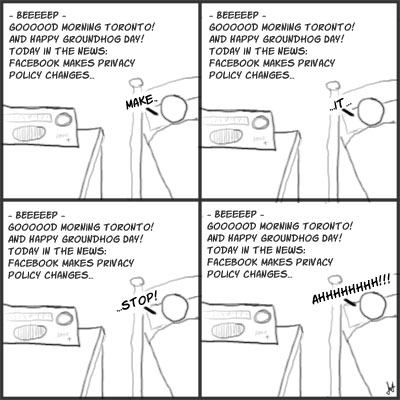 You've probably heard about it: Google's Street View cars that drive around taking pictures for the service also logged open WiFi networks and occasionally nabbed unencrypted network data.
You've probably heard about it: Google's Street View cars that drive around taking pictures for the service also logged open WiFi networks and occasionally nabbed unencrypted network data. While the logging of open WiFi networks was intentional, the nabbing of unencrypted data was, apparently, not. Google claims to have since deleted the unencrypted data from its stores, and has deployed a fix to their logging software to ensure it doesn't happen again.
Case closed? Not in the media. Thanks to Facebook's recent privacy changes and the backlash from privacy experts and some of the general public, privacy is a burning topic, and it burns bright!
I think it odd, however, that most stories I've read have focused on Google as the Big Bad Guy, while most reader comments I've read have focused on user responsibility. Let me explain.
Pretend for a moment that you just got a house. From the house fairy, or whatever. Anyway, you have this house and you move in. It's a very nice house and you put in it all your favorite things. But since you enjoy fresh air, you don't install any windows, or doors. Everything is wide open. One day you come back from work and discover all your nice things are missing. You run outside looking for the culprit, and manage to catch a glimpse of a large truck with a Google logo driving off into the sunset. Or maybe it's a Facebook logo. Whatever. You get the picture.
Like in real world theft, there are nefarious people that will break the rules to get your stuff. But in the above analogy, the house is like an open WiFi network. Leaving a WiFi network unsecured is an invitation to use and abuse it.
The public seems to be slowly (and painfully) learning some basic rules about living in our technological society, such as:
No Toasters. Anything to do with computers and the internet is not going to be as straight-forward as a toaster. They can't be treated the same.
Effort Required. If something needs to be private, lock it away. Put up doors. Lock windows. Add iron bars. Use complex passwords. Run anti-virus and anti-malware software. Make the effort, because the bad guys are.
Abstain. In the same way that the most secure network is one that has no attachment to the internet, if something needs to be private, don't put it on the internet.
Mafia 101 Leave no witnesses. When you're going to do something risky in the real world, make sure you take the proper precautions. If you're being stupid, risky, or behaving poorly in public, someone will capture the moment, legally - and it's going to be more common as technology advances. Your act will be instantly available with a simple search. It will never go away. Take the initiative and think before you act.
Education As a consumer and as a member of society it is your duty to remain educated about the risks and benefits of all technologies you encounter. Ignorance allows others to make decisions for you - the biggest privacy invasion of all.
Back to Google. I'm happy the user comments I read focused on the need to increase user awareness about their own privacy instead of crucifying Google for what appears to be a bug. It's reassuring to know the wisdom of crowds can treat a complex issue like privacy fairly on a case-by-case basis.
I'll save the Facebook privacy bait-and-switch for another day.
© Jeremy Buehler and Rogue Tendencies (www.roguetendencies.com) 2010.

 I've been spending a lot of time lately thinking about how to make a social game fun, viral, non-predatory and liability-free. Here are a few of the things that got me headed down this path:
I've been spending a lot of time lately thinking about how to make a social game fun, viral, non-predatory and liability-free. Here are a few of the things that got me headed down this path:



